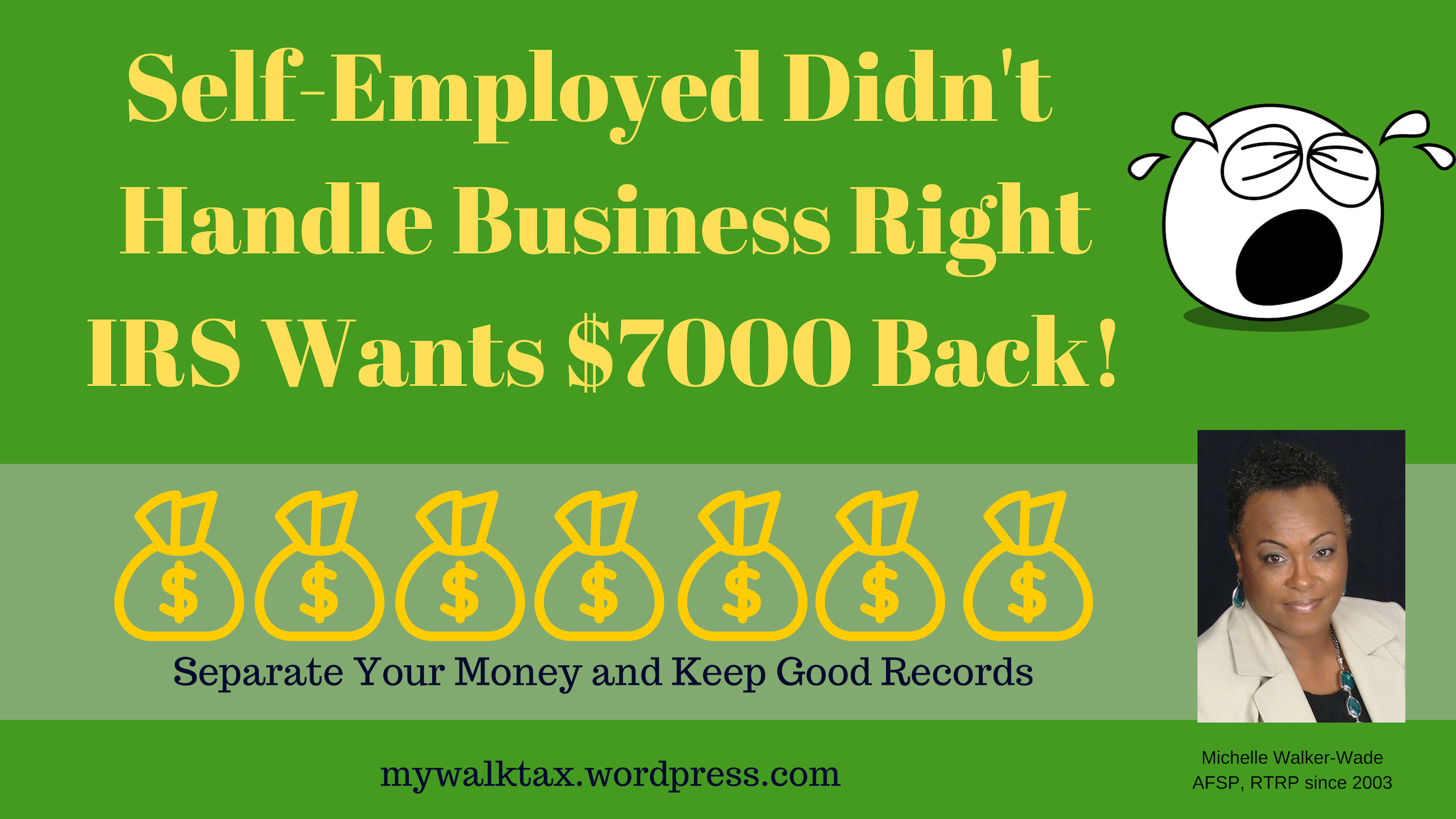My sole proprietor clients think I’m hard on them. They wish I’d leave them alone about maintaining a separate bank account for their business. They don’t want to hear me go on and on about not co-mingling funds, depositing and reporting every dollar made in business, and not over-stating expenses. There are several reasons I do this; but here’s just one.

Here’s the story: A client has a housekeeping business for which 99% of her customers paid her in cash or check. In 2016 she reported $16000.00 in income. Because she’s a single mother of two children and files as Head of Household, her reported business income for 2016 was low enough for her to qualify for a nice $6500 Earned Income Credit.
Fast forward to 2018. The IRS wanted her to prove the $16k she reported for 2016 is the actual amount she earned, OR pay back a little over $7000 for the tax credit plus penalty and interest.
Guess what? The only way she can prove her income is to get letters from her clients or turn proof in the form of 12 months of bank statements, receipt books, and calendars.
This problem is…. she can’t because she never set up a bank account solely for her business and she did not keep meticulous records.
If she gets letters from her clients, the IRS may decide to investigate them (her clients) further, because if any client paid her more than $2000 during the 2016 calendar year, the housekeeper is legally classified as a Household Employee, and should have had taxes withheld, and paid and reported by the customer/client. Yep! This amount changes from year to year. For example in 2013 it was $1700/year. In 2018 it was $2100/year.
What’s going to happen next with this self-employed housekeeper? She needs to pay the money, make an offer-in-compromise, or obtain legal counsel on potentially being classified for a non-collectible status for up to two years. A non-collectible status can backfire, so make sure you don’t go that alone.
Also, know this, the IRS may take the same position on her 2017 tax refund, and the State will want a bite out of her too.
This could just get ugly.
My suggestions to you if you’re self-employed:
- Use a separate bank account for all your business related income and expenses.
- Transfer money from your business bank account to your personal bank account. Pay your personal expenses out of your personal account.
- If you have a high-cash service business (ie housekeeping, beauty, and so on) strongly promote getting paid through non-cash methods such as Square, Wave or Paypal. NOTE: Keep your business PayPal separate from your personal PayPal.
- Maintain serious records on your client appointments. Keep a schedule book with notes.
- Give a receipt for all sales (so that no receipt is missing). Make sure your receipts match up with your bank deposits.
Is this a lot of work. YEP! I cannot lie; it is a lot of work. But, it will help you fight off the IRS in the event of an audit.
